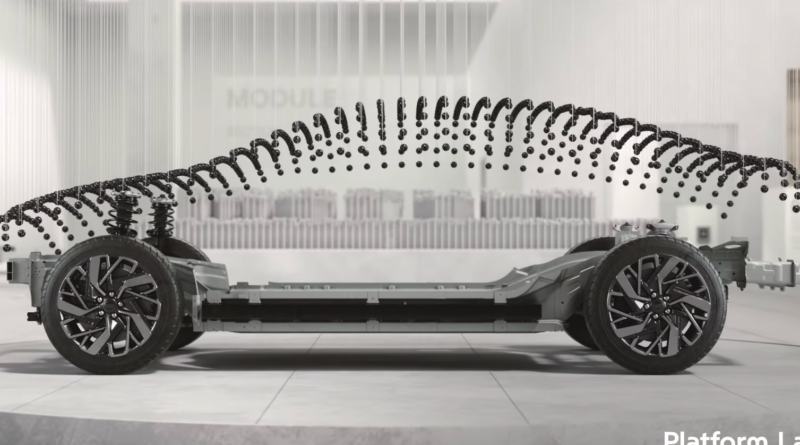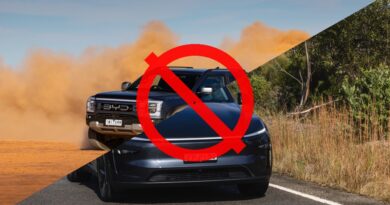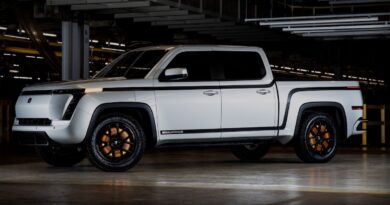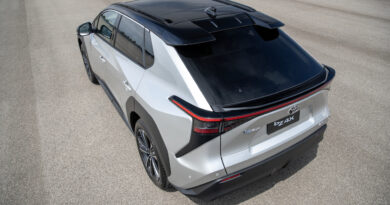Rear drive, high performance Hyundai, Kia and Genesis EVs coming
When Hyundai Motor Group hired Albert Biermann to head up its Performance and R&D Divisions, it was inevitable his genius would be turned to spearheading Hyundai, Kia and Genesis performance offerings.
As the Group reveals its all-new E-GMP dedicated EV platform, the man who sprinkled magic on the famed BMW E30 M3 race car, BMW 1 Series M Coupe and turbocharged front-drive Hyundai i30N hot hatch has a twinkle in his eye when discussing Hyundai’s prototype high performance vehicle.
During a Zoom presentation from Korea, Mr Biermann fielded questions regarding the platform’s scalability and its clever axles, but got all the more animated and enthused when discussing his proper pet projects — the fast EVs under development. He said a prototype high performance vehicle could be revealed as early as March or April next year.
“We are working already on concepts with high performance, and considering high performance Hyundai N cars,” he said. This follows news Hyudani will take its Veloster N ETCR racing in the new PURE ETCR series featuring pure electric race cars, and the reveal of its 569kW/960N RM20e prototype developed in conjunction with Rimac.

The RM20e gave a clear statement of Hyundai’s all-electric supercar intent – 0-100km/h is claimed in under three seconds and 0-200km/h in under ten seconds – but also potentially for the Group’s other brands, Kia and Genesis.
“We’re preparing a very emotional battery electric driving experience, also maybe for Kia and Genesis,” Biermann explained. “In our high-powered application, our motor can do over 20,000rpm.”
When Biermann first moved to Hyundai it was questioned how his talent for developing performance rear-wheel-drive BMWs could be translated to front-wheel drive Hyundais – the answer coming immediately with the highly regarded i30N.
But with the new E-GMP electric platform he’s back on familiar ground, the default setup being for rear-drive applications.
“The starting point (motor) is already pretty powerful, with the power level already being pretty high for two-wheel-drive and integrated driveshaft that comes from motor sport,” he said. “To deliver in all aspects of driving and performance, we thought it’s the right way to put the main motor on the rear axle. This can be a lot of fun.”
Sitting in front of the platform, Biermann pointed out the “huge wheels,” which give “a fantastic point for strong styling; it will not look like all the other EVs,” he promised.

While lamenting the fact coronavirus travel restrictions meant journalists were not able to see and sample a prototype performance EV for themselves, he said “probably many people will be surprised about the substance and driving capabilities.”
Biermann said the original plan was for journalists to test the performance prototype on some “dragster runs” to see how it compares with competitors and “how powerful the new E-GMP platform is.”
“I wish we could do a competition with 20 or 30 (drag) runs, charge it and show the battery is at 100% again,” he said. “I think at this point nobody could beat us in this competition.” A Porsche Taycan showdown would clearly be called for to back this.
There was the promise of employing weight-saving tricks such as the world’s-first integrated drive axle and reliance on aluminium, while reiterating the “small, high speed motors” were a very efficient way of reducing mass.
While much information regarding vehicle specifics was vague – what we can expect to see and when, power figures, range and all those other important bits – we did glean some extra details.
The Hyundai Ioniq 5 – set to appear early in 2021 – will be the first production car to utilise the new platform, while Kia will launch its first vehicle based on the platform next year. Its modular nature means it can cover multiple size vehicles, including large 7-seat SUVs in future.

A fuel cell option was under review for the platform in future – particularly on the commercial vehicle front – as was the potential for collaboration with other manufacturers to share the platform.
No combustion engine would be employed on the new platform – ruling out hybrid or plug-in hybrid vehicles.
The nature of the platform’s reveal meant many questions went unanswered, but it’s clear for performance, rear-wheel-drive enthusiasts (Australians, basically), there’s much to be excited about from the Hyundai/Kia/Genesis stables in coming months and years. Albert Biermann will make sure of it.




